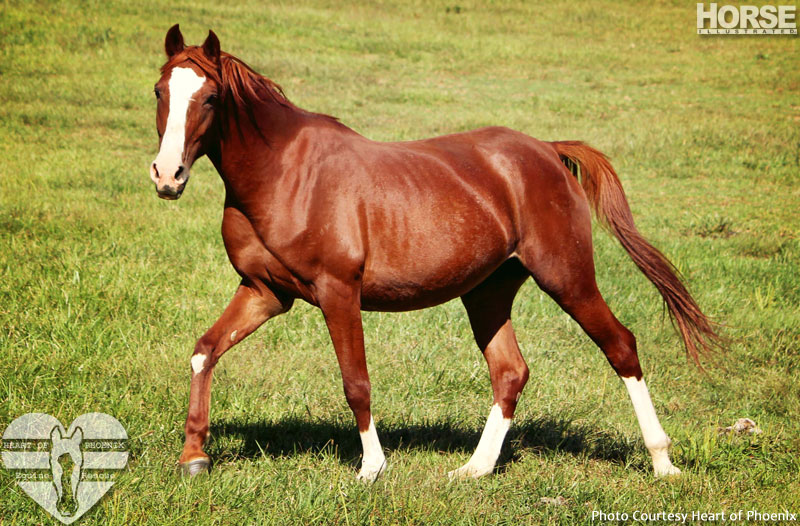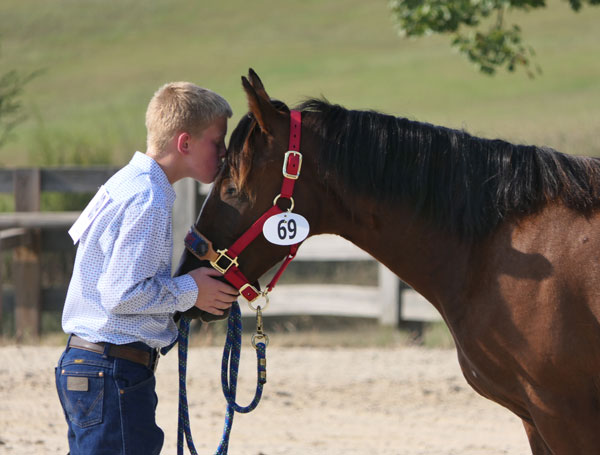
The Horse Transportation Safety Act and the Farm Bill now awaits passage by the Senate after passage by the U.S. House of Representatives. Photo by Kamira/Shutterstock
Equine welfare advocates are applauding members of the United States House of Representatives for passing legislation — the Horse Transportation Safety Act and the Farm Bill — that will maintain the prohibition on horse processing plant development in the U.S. and promote the safety of horses that are transported across state lines.
The Horse Transportation Safety Act
On July 1, the U.S. House passed H.R. 2, also known as the Moving Forward Act, which uses federal revenue to improve infrastructure, including roads, bridges, and transport. Contained in that legislation is H.R. 1400, or The Horse Transportation Safety Act.
Sponsored by Rep. Steve Cohen (D-TN, 9th District), H.R. 1400 makes it unlawful to transport horses across state lines in double-decker trucks or trailers containing two or more levels stacked on top of one another. Double-decker transport and multi-level trailers have often been used to transport horses across state lines to slaughter meat processing plants in Canada and Mexico.
House passage of the legislation is significant because some horse welfare advocates have long sought a ban on multi-level horse transport on grounds that the trucks and trailers prohibit horses from standing upright during transport and increases the possibility of rollover accidents.
The measure is the latest incarnation of similar legislation prompted by a 2007 rollover accident involving 59 draft horses traveling from Indiana to Minnesota in a double-deck trailer. In all, 17 horses were killed in the incident and several more were injured.
HR. 2 containing H.R. 1400 now moves to the U.S. Senate for consideration.
According to Marty Irby, executive director of the animal welfare advocacy group Animal Wellness Action, whether or not the measure survives Senate “Green New Deal changes to H.R. 2 is uncertain.
“H.R. 2 could be amended by the Senate and sent back to the House, or the Senate could pass its own bill and send to the House,” said Irby. “I feel less confident about the Horse Transportation Safety Act being included in a Senate bill, but I believe that if they amend the House bill they will likely maintain the provision.”
The Farm Bill, aka the FY2021 Agriculture Appropriations Bill
Known also as the Farm Bill, the FY2021 Agriculture Appropriations Bill establishes funding for the U.S. Department of Agriculture (USDA) for fiscal year 2021.
Under the measure, the USDA would receive an additional $2 million to enforce the Horse Protection Act (HPA), which prohibits the soring of Tennessee Walking Horses (TWH) and other breeds. Soring is the deliberate injury to a horse’s feet and legs to achieve an exaggerated, high-stepping gait. Violators could face both civil and criminal penalties, including fines and jail time. The amount represents a two-fold increase in funding for enforcement of the federal law.
The Farm Bill also maintains the current ban on horse processing in the U.S. by prohibiting the USDA from using any of its funds to pay for Food Safety and Inspection Service (FSIS) inspections at horse processing plants in the U.S.
Prior to 2007, USDA FSIS personnel carried out horsemeat inspections at horse processing plants in the U.S. That same year, Congress voted to strip the USDA of the funds required to pay personnel conducting federal horsemeat inspections at the last two domestic horse slaughter plants operating in Illinois and Texas. The combination of legislation and local court rulings later closed both of those plants.
Since then, federal funding bills continued to include language denying the USDA of funding for horsemeat inspections until 2011 when Congress passed a 2012 appropriations bill that failed to contain language specifically forbidding the USDA from using federal dollars to fund horse slaughter plant inspections. Shortly after that bill became law, horse processing plants were proposed in several states but were never established.
“We are grateful to the House Committee for including these lifesaving measures in the bill, and we urge Congress to pass these critical provisions as part of the final appropriations package,” said Nancy Perry, senior vice president of ASPCA Government Relations.
However, the Senate will offer its own Agriculture Appropriations bill. Perry hopes the House provisions will remain intact.
The FY2021 Agriculture Appropriations Bill will go to conference committee in both the U.S. House and Senate to work out the differences before the final legislation is sent to the White House for the president’s signature.
“The final (Agriculture Appropriations) bill will likely come in December at the last minute as always,” Irby said. “But it should also maintain both provisions.”




